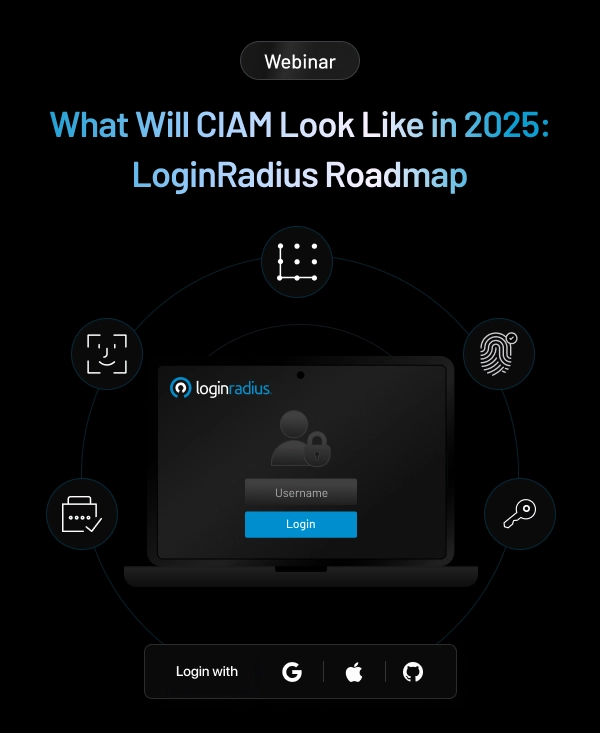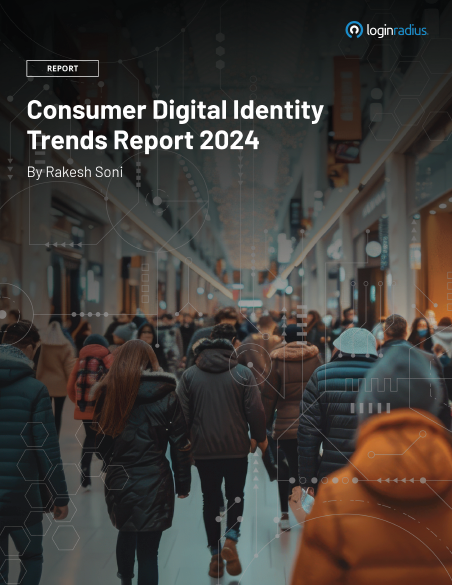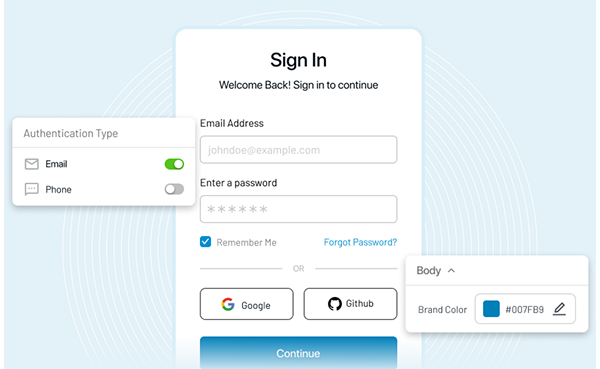Introduction
Adaptive authentication is a game-changer for enterprises that require strong fencing to protect consumer and enterprise data. Here’s a quick read depicting the role and need for adaptive authentication instead of just multi-factor authentication.
With technology evolving leaps and bounds, identity and access management become stringently important for businesses collecting user information.
However, managing the identities of millions of consumers wasn’t a tough nut to crack earlier as it is today.
Especially in the most unpredictable times of COVID-19 when the world is witnessing a substantial surge in the number of security breaches.
Security layers backed by multi-factor authentication (MFA) were considered entirely secure when enterprises had a limited number of consumers.
We’re talking about the era when no one expected the abrupt rise of SaaS applications for the enhanced business process containing heaps of sensitive data (client and organization).
For many enterprises, this meant the need to implement multi-factor authentication, which, however, proved to be fruitful but may not work in a high-risk event.
So, does it mean that multi-factor authentication isn’t the best authentication mechanism?
Yes, as things have drastically changed now.
Let’s quickly learn about the next level of authentication- “Adaptive Authentication,” and how it’s paving a path for a robust security ecosystem in today’s era.
The Need for Adaptive Authentication
Usernames and passwords alone can’t guarantee enough security for users and the enterprise since attackers are continuously bypassing frailer defense systems.
Moreover, multi-factor authentication also seems ineffective in certain situations when the risk is relatively high, and it raises the need for a rigid security mechanism.
In recent years, adaptive authentication has been integrated with customer identity and access management (CIAM) platforms and is considered the best approach since authenticated users can only access data and resources.
Let’s dig deeper into this and understand the ultimate approach to best secure user identities and data and sensitive business information.
What is Multi-Factor Authentication?
Multi-factor authentication (MFA) is a multi-layered protection framework that verifies users’ login or other transaction identities to provide access to certain resources.
A few examples of multi-factor authentication are codes created by mobile apps, answers to personal security questions, codes sent to an email address, fingerprints, etc.
Read this post to get the detailed information regarding multi-factor authentication, how it works, and how to quickly set up multi-factor authentication.
What is Adaptive Authentication?
Just like multi-factor authentication, adaptive authentication also verifies an identity but eventually considers certain security risk factors.
Adaptive Authentication (also known as Risk-based Authentication) or adaptive multifactor authentication is a method to send notifications or prompt the consumers to complete an additional step(s) to verify their identities when the authentication request is deemed malicious according to your organization's security policy.
In a nutshell, Adaptive Authentication analyzes the user interaction with your application and intelligently builds a risk profile based on the consumer behavior or your organization's security policy.
And when we talk about adaptive authentication example, let’s consider a scenario where a user tries to log into its account from a different device/location or changes the pattern of logging in into his/her account. Here, the smart system will detect an unusual activity and would eventually add another stringent layer of authentication.
This approach improves overall security by ensuring that high-risk consumers have the highest level of adaptable and flexible security in place.
Apart from this, adaptive authentication is considered far smarter than multi-factor authentication since it responds to the device that attempts to log in, the IP address, and the geographical location of the attempt.
This means the mechanism automatically implements robust authentication controls whenever a login seems to be suspicious.
Adaptive Authentication and Strong Customer Authentication
Adaptive authentication and strong customer authentication are two important methods used by businesses to protect against fraudulent activities and ensure secure transactions.
Adaptive authentication or adaptive multifactor authentication involves the use of multiple authentication factors, such as passwords, biometric data, and security tokens, to verify the identity of users based on risk factors such as the location and type of device being used.
SCA is a regulatory requirement under the European Union's Payment Services Directive 2 (PSD2), which mandates the use of at least two independent authentication factors for all electronic transactions.
This ensures that only authorized individuals can access sensitive data or perform financial transactions. Together, adaptive authentication and SCA provide a multi-layered approach to security, enhancing user protection and mitigating the risk of cyber attacks.
Working Mechanism of Adaptive Authentication
Whenever an authentication request is estimated as a malicious attempt, based on the risk factors defined for your application, it triggers one or more of the following actions as per your predefined requirements:
- Email Notification: An email with a notification regarding the authentication request is sent to the consumer. If found malicious, the consumer can inform their service provider to take the necessary action.
- SMS Notification: An SMS notification is sent to the consumer regarding the authentication request. This further helps in identifying a malicious request, which can be reported quickly.
- Multi-Factor Authentication: The consumer is asked to verify their identity through the second factor of authentication. This can be either email verification, phone verification, or a security question-based authentication.
- Blocking User Access: After multiple access requests, the account is blocked immediately once a specific risk criterion is met. Now the consumer needs to get in touch with the service provider to get unblocked.
- Security Questions: Security questions offer a way to authenticate users once they are under suspicion. Consumers need to answer certain questions to prove their identity.
The Biggest Advantage of Adaptive Authentication
Adaptive authentication increases your conversion rates!
Yes, here’s how it’s achieved.
Besides the fact that adaptive authentication offers the highest level of security for both consumers and enterprises, it also ensures a frictionless authentication process for normal conditions.
Yes, unlike multi-factor authentication that creates a lengthy authentication process each time a user tries to log in, adaptive authentication only kicks in whenever it finds a suspicious login attempt.
This means a user won’t need to prove their identity through multiple layers of authentication in everyday scenarios. Instead, the user would only be required to go through the authentication process if the system finds any unusual activity from the user’s end or detects a risk.
Must read: What is Risk-Based Authentication?
When users get a flawless experience while signing in, there are more chances of conversion when compared to a login process involving an exhausting authentication process.
In Conclusion
Adaptive authentication or adaptive multifactor authentication is the key to business success backed by enhanced security for both the consumers and enterprises.
LoginRadius’ CIAM offers a top-notch adaptive authentication solution through its “Risk-Based Authentication” mechanism.
Enterprises seeking the highest level of consumer and organization data security without hampering the user experience should consider relying on LoginRadius’ cutting-edge CIAM solution.
Need more help? Reach us to know how LoginRadius’ “Adaptive Authentication” can help secure your consumer identities and business information.
















